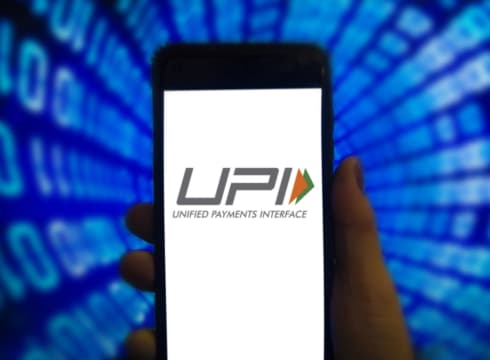The RBI has proposed to allow banks to offer pre-sanctioned credit lines to users via UPI
The RBI’s proposal comes almost a year after it banned non-banking entities from loading PPIs with credit lines
The move is expected to encourage innovation and help fintech startups
Inc42 Daily Brief
Stay Ahead With Daily News & Analysis on India’s Tech & Startup Economy
The Reserve Bank of India (RBI) on Thursday (April 6) proposed to ‘expand the scope’ of the Unified Payment Interface (UPI) by allowing banks to offer pre-sanctioned credit lines to users via UPI.
“It is now proposed to expand the scope of UPI by enabling transfer to/from pre-sanctioned credit lines at banks, in addition to deposit accounts. In other words, the UPI network will facilitate payments financed by credit from banks,” the RBI said in its ‘Statement on Developmental and Regulatory Policies’ after the Monetary Policy Committee (MPC) meeting.
In simple words, the move will enable users to get credit the way they do with credit cards. For instance, if a customer has an account balance of INR INR 50,000 currently, he can only transfer this amount via UPI to other banks or wallets.
However, the latest announcement will change this. If a bank has issued a pre-sanctioned credit line of say INR 1 Lakh to a customer, the customer can utilise this line through UPI even if the account balance is low.
The move is another step by the central bank to bring more people into the formal credit economy.
The RBI said that the move will “reduce the cost of such offerings (credit lines) and help in the development of unique products for Indian markets”, while RBI Governor Shaktikanta Das said that the initiative would encourage innovation.
However, the central bank will separately release detailed guidelines on the issue.
Commenting on the RBI’s announcement, Rajesh Sabhlok, MD for Asia Pacific at fintech SaaS platform Vymo, said, “The proposal should also be extended to non-banking financial companies (NBFCs) that offer revolving credit products to retail and small business customers. This would help these companies expand their customer base and improve efficiency by using digital platforms.”
RBI’s Helping Hand To Fintech Startups?
The latest development comes almost a year after the RBI banned entities without a banking licence from loading prepaid payment instruments (PPIs) with credit lines. This announcement disrupted the business models of many startups, including unicorns such as Slice, Jupiter, and Fi.
Many BNPL players had to resort to tenuous workarounds to continue to deliver a seamless experience post the central bank’s decision.
However, the digital lending guidelines released in August 2022 laid down a very clear groundwork for Indian lendingtech startups. According to industry sources, the central bank’s latest announcement will encourage innovations by Indian fintechs.
Harish Prasad, Head of Banking, India, FIS believes that the RBI’s move can be a milestone decision which can reignite the digital lending and BNPL space. Opening up the UPI channel for access to credit lines can create new opportunities to use credit across a much larger merchant base.
Also, there is a possibility that fintechs, which are currently working with banks primarily as tech service providers or for issuing co-branded credit cards, may now look for co-lending opportunities, which will be an added revenue line for the struggling fintechs in the Indian startup ecosystem.
While the RBI’s announcement is being seen as a positive move by the BFSI community, fintech players refused to comment citing absence of detailed guidelines.
RBI On AI
At the MPC meeting, the RBI also discussed the development of a centralised web portal for users to search unclaimed deposits. Essentially, the central bank is working on developing a portal that would allow the public to search for deposits that have remained unclaimed for 10 years.
Normally, these funds are transferred to the “Depositor Education and Awareness” (DEA) Fund maintained by the RBI. However, the new portal will ensure that newer deposits don’t turn unclaimed and existing unclaimed deposits are returned to the rightful owners or beneficiaries after following due procedure.
This also ties into the RBI’s increased focus on AI, as the central bank plans to use the technology to improve and widen the access of depositors to such data.
Earlier, Finance Minister Nirmala Sitharaman also asked banks to deploy AI, data analysis and Web3 tools for fraud detection and early warning signals. She said banks could leverage Web3 and AI for a host of reasons including detecting fraud and unusual transactions.
Interestingly, certain banks and NBFCs are already using AI and deeptech to improve user experience and security.
Mumbai-based fintech startup Kiya.ai launched a Metaverse-based banking experience last year which will be used by banks and non-banking finance companies (NBFCs) to enable virtual interactions.
{{#name}}{{name}}{{/name}}{{^name}}-{{/name}}
{{#description}}{{description}}...{{/description}}{{^description}}-{{/description}}
Note: We at Inc42 take our ethics very seriously. More information about it can be found here.


